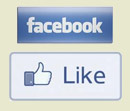Movement Therapy
Movement Therapy – Primary Movement
Many difficulties associated with school and learning can be linked to neurological immaturity.
Primary Movement® is an exercise routine in which children replicate the movements of the foetus in the womb. This triggers the integration of retained primary reflexes, which contribute to behavioural, educational and emotional difficulties.
Primary reflexes are the first movements that the baby makes in the womb and are critical for the survival of the newborn. But, at one year of age the primary reflexes system should switch off and the secondary reflexes take over. As the child grows older, movements are controlled more by thought than by reflex.
Problems arise, however, when some primary reflexes persist long after their normal time span. There are some telltale signs that can show up in the early years. The persistence of these primary reflexes interferes with subsequent development and indicates neuro-developmental delay. This has a direct bearing on educational functioning and performance and is linked to a diverse range of learning difficulties including dyslexia.
The Primary Movement® Programme involves a daily movement exercise which takes approximately 10 minutes and is easily done at home.
Benefits of the programme include reading gain, improved concentration and improved behaviour.
The Primary Movement® programme was researched and developed by Dr Martin McPhillips at the School of Psychology, Queen’s University, Belfast. The results of the study, which were published in The Lancet in 2000, showed that children who have specific reading difficulties, including dyslexia, can increase their reading ages by nearly 2 years by completing the programme. The programme has been brought into the public domain by Primary Movement which is a non-profit making charitable organisation www.primarymovement.org
The typical programme can be completed in 9 to 12 months for optimal results. Progress is reviewed every 2 months and the programme changed as necessary.
Telltale signs –
Primary Movement Programme screening questionnaire
